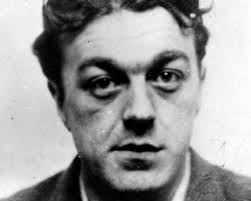Aaron Hernandez: From NFL Star to Notorious Criminal
Introduction
Aaron Hernandez was once a celebrated tight end for the New England Patriots, known for his athletic prowess and potential in the National Football League (NFL). However, his life took a tragic turn when he became embroiled in a series of criminal activities that ultimately led to his conviction for murder and subsequent suicide in prison. The story of Aaron Hernandez encapsulates the intricate nexus of fame, mental health issues, and the dangerous consequences of poor life choices.
The Early Life and Career of Aaron Hernandez
Born on November 6, 1989, in Bristol, Connecticut, Hernandez showcased extraordinary talent in football from a young age. After a successful college career at the University of Florida, where he helped the Gators secure a national championship, he was drafted by the New England Patriots in 2010. He quickly became a key player, forming a formidable partnership with fellow tight end Rob Gronkowski.
The Descent into Crime
Despite his success on the field, Hernandez faced personal demons. Reports suggest he struggled with mental health issues, including severe depression and possible CTE (chronic traumatic encephalopathy) – a degenerative brain disease associated with repeated head injuries. Hernandez’s life took a dark turn in June 2013 when he was arrested for the murder of Odin Lloyd, a semi-professional football player. The details surrounding Lloyd’s shooting were grisly, with Hernandez eventually being convicted and sentenced to life in prison without parole in April 2015.
Impact of the Case
The Aaron Hernandez case sparked widespread media coverage and public interest, highlighting issues such as domestic violence, mental health in athletes, and the culture of violence surrounding professional sports. As more details of his life emerged, including instances of alleged involvement in other crimes, the public became increasingly captivated by the duality of his character—a talented athlete who turned into a convicted murderer.
Conclusion
Hernandez’s life came to a tragic end when he was found dead in his prison cell in April 2017, an apparent suicide. Posthumously, his brain was examined, revealing significant signs of CTE, further complicating the narrative of his actions and mental health struggles. The Aaron Hernandez story serves as a cautionary tale about the pressures of fame, the responsibilities of role models, and the critical need for mental health support for athletes. His life and choices raise pertinent questions about the safety and wellbeing of individuals in high-pressure environments, making it a significant topic for ongoing discussion and reflection in society.








